
Cinnamon Gardens: Colombo's Leafy Oasis
Nestled in the heart of Colombo, Cinnamon Gardens is a lush and verdant neighborhood that offers a refreshing escape from the bustling city. Known for its tree-lined avenues and colonial-era bungalows, this area exudes a unique blend of historical charm and modern elegance. It's the ideal destination for those looking to explore the rich cultural tapestry of Sri Lanka while enjoying a serene and picturesque environment. Start your visit at the Viharamahadevi Park, Colombo's largest and oldest park, where you can stroll through beautifully manicured gardens and admire the majestic flowering trees. Nearby, you'll find the National Museum of Colombo, home to an impressive collection of artifacts that tell the story of Sri Lanka's diverse history. The neighborhood is also a hub for art enthusiasts, with several galleries showcasing contemporary Sri Lankan art. Cinnamon Gardens is not just about history and culture; it also offers a vibrant dining scene. From upscale restaurants to cozy cafes, you'll find a variety of culinary delights to satisfy your palate. Don’t miss the chance to enjoy a traditional Sri Lankan meal at one of the local eateries. The neighborhood's central location makes it a convenient base for exploring other parts of Colombo, but its peaceful ambiance will always welcome you back.
Local tips in Cinnamon Gardens
- Visit Viharamahadevi Park early in the morning to enjoy the tranquility and avoid the midday heat.
- Allocate a few hours to explore the National Museum of Colombo; it's rich in history and artifacts.
- Try local Sri Lankan cuisine at one of the neighborhood's traditional eateries for an authentic experience.
- Wear comfortable walking shoes as the best way to explore the area is on foot.
- Check out the local art galleries to get a sense of the contemporary art scene in Sri Lanka.
Cinnamon Gardens: Colombo's Leafy Oasis
Nestled in the heart of Colombo, Cinnamon Gardens is a lush and verdant neighborhood that offers a refreshing escape from the bustling city. Known for its tree-lined avenues and colonial-era bungalows, this area exudes a unique blend of historical charm and modern elegance. It's the ideal destination for those looking to explore the rich cultural tapestry of Sri Lanka while enjoying a serene and picturesque environment. Start your visit at the Viharamahadevi Park, Colombo's largest and oldest park, where you can stroll through beautifully manicured gardens and admire the majestic flowering trees. Nearby, you'll find the National Museum of Colombo, home to an impressive collection of artifacts that tell the story of Sri Lanka's diverse history. The neighborhood is also a hub for art enthusiasts, with several galleries showcasing contemporary Sri Lankan art. Cinnamon Gardens is not just about history and culture; it also offers a vibrant dining scene. From upscale restaurants to cozy cafes, you'll find a variety of culinary delights to satisfy your palate. Don’t miss the chance to enjoy a traditional Sri Lankan meal at one of the local eateries. The neighborhood's central location makes it a convenient base for exploring other parts of Colombo, but its peaceful ambiance will always welcome you back.
Iconic landmarks you can’t miss
Viharamahadevi Park
Experience the lush beauty and cultural richness of Viharamahadevi Park, Colombo's serene escape for relaxation and exploration.
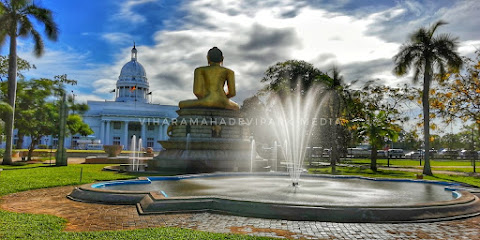
Independence Square
Explore the rich history and serene beauty of Independence Square, a pivotal landmark in Colombo symbolizing Sri Lanka's journey to freedom.
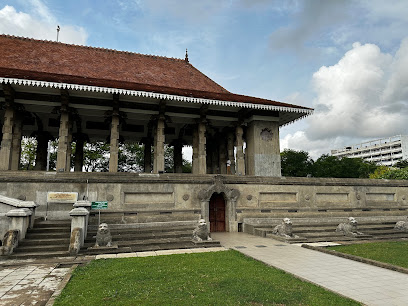
Colombo Lotus Tower
Experience panoramic views of Colombo from the iconic Lotus Tower, the tallest structure in South Asia, blending modernity with cultural significance.
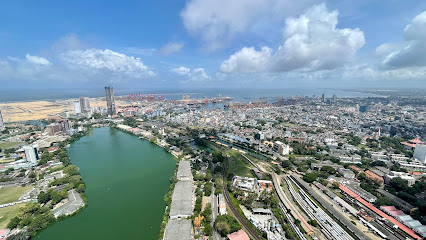
Colombo National Museum
Explore the Colombo National Museum, a gateway to Sri Lanka's diverse history and culture, featuring artifacts from ancient times to the present.
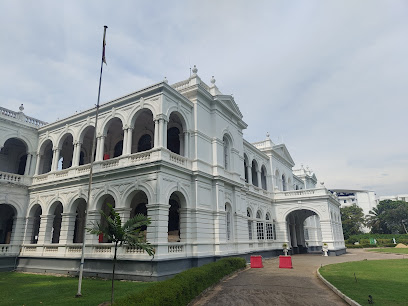
Gangaramaya Park
Explore the serene beauty of Gangaramaya Park in Colombo, a blend of nature and culture perfect for families and solo travelers alike.
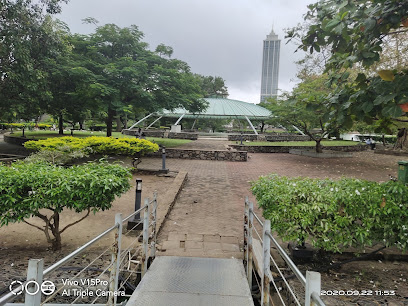
Srī Sambōdhi Mahavihāra Temple
Explore the serene beauty and cultural richness of Srī Sambōdhi Mahavihāra Temple, a must-visit Buddhist site in Colombo, Sri Lanka.
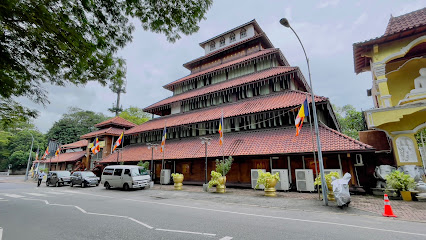
Sri Lanka Planetarium
Discover the mysteries of the universe at the Sri Lanka Planetarium, a captivating destination for astronomy lovers and curious minds in Colombo.
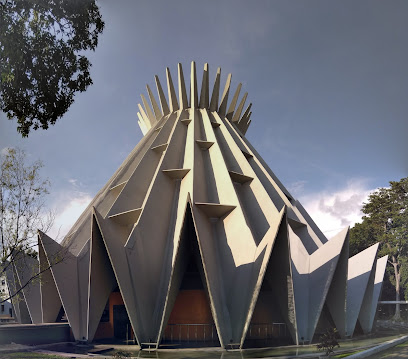
Viharamaha Devi Park Buddha Statue
Explore the tranquil beauty of Viharamaha Devi Park and the stunning Buddha Statue, a historical landmark in the heart of Colombo, Sri Lanka.
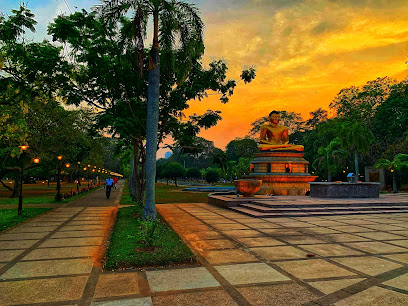
Independence Memorial Museum
Discover the rich heritage of Sri Lanka at the Independence Memorial Museum, a historical landmark showcasing the nation's journey to freedom.
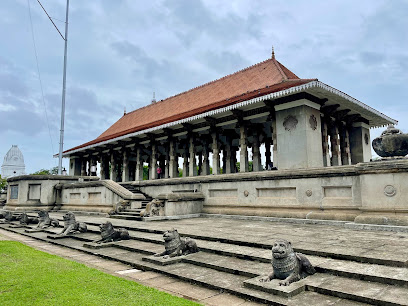
Khan Clock Tower
Explore the historic Khan Clock Tower in Colombo, a stunning architectural gem that captures the essence of Sri Lanka's colonial past.
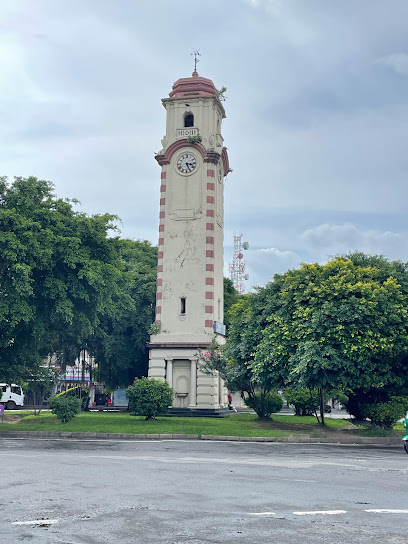
Cinnamon Garden Residencies
Discover serenity at Cinnamon Garden Residencies in Colombo, offering comfortable accommodations and easy access to the city's vibrant culture and attractions.
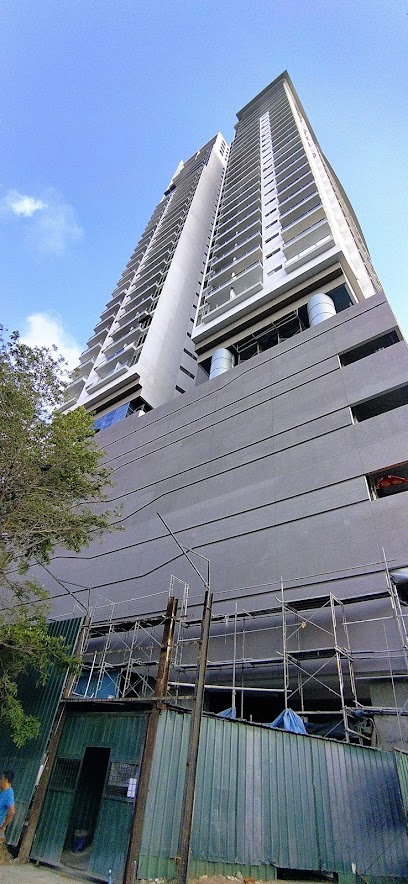
Kayman's Gate - Dutch Bell Tower, කයිමන් දොරකඩ
Explore the charm of Kayman's Gate, the Dutch Bell Tower in Colombo, a historical landmark steeped in colonial history and architectural beauty.
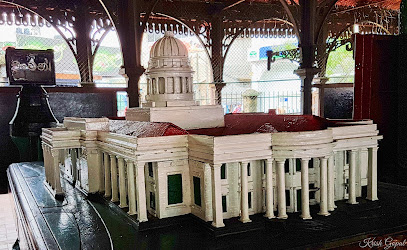
Cinnamon Nature Trails
Explore the lush trails and vibrant wildlife at Cinnamon Nature Trails, a serene escape in the heart of Colombo, perfect for nature lovers and adventure seekers.
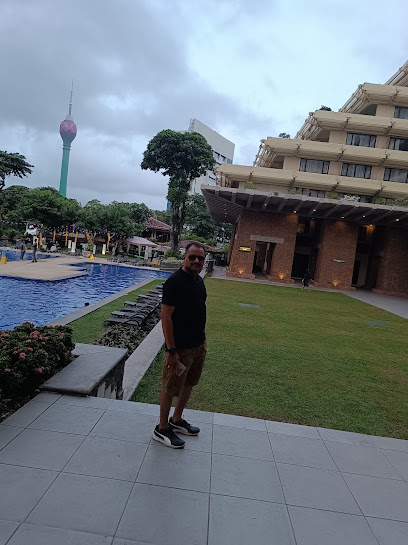
Summer Hut
Experience the serene beauty of Summer Hut in Colombo, a perfect park for relaxation and leisurely activities amidst the city bustle.
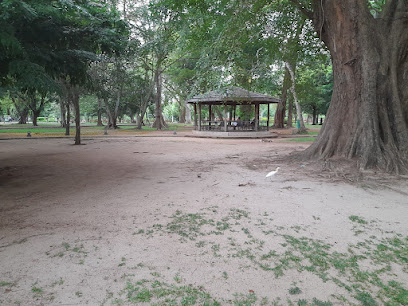
Felix Dias Bandaranaike Statue
Explore the Felix Dias Bandaranaike Statue in Colombo, a serene tribute to Sri Lanka's political history and a gateway to cultural exploration.
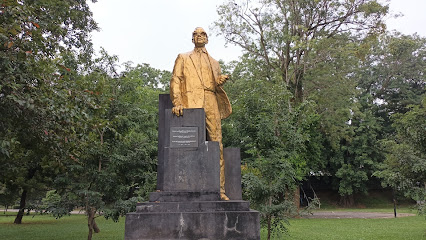
Unmissable attractions to see
Galle Face Green
Explore the breathtaking Galle Face Green, Colombo's coastal paradise, perfect for relaxation, local culture, and stunning ocean views.
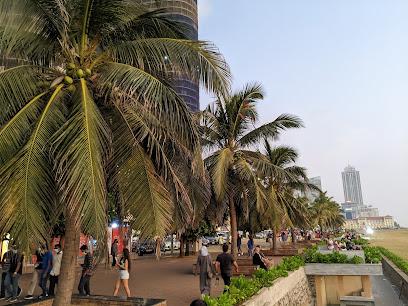
Viharamahadevi Park
Explore the beauty of Viharamahadevi Park in Colombo, a serene oasis offering lush landscapes, vibrant flowers, and cultural landmarks for a perfect day out.
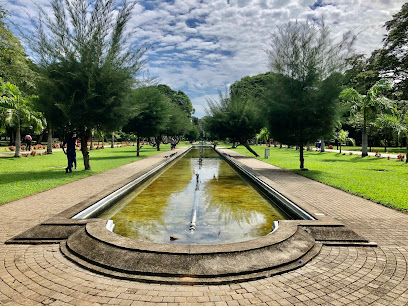
Sri Lanka Planetarium
Discover the universe at the Sri Lanka Planetarium in Colombo, where science meets entertainment in an engaging astronomical experience.
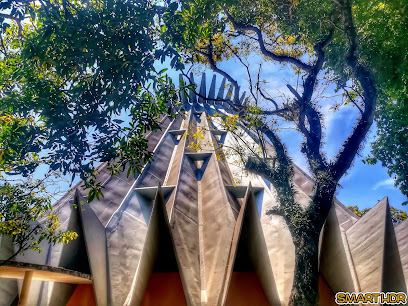
Essential places to dine
The Barnesbury
Experience exquisite dining at The Barnesbury in Colombo - where unique ambiance meets exceptional cuisine.
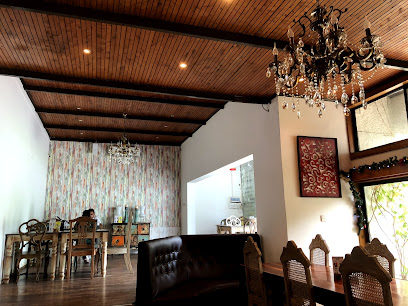
Mintage
Experience the vibrant culinary scene at Mintage in Colombo, where local flavors meet modern cuisine in an inviting atmosphere.
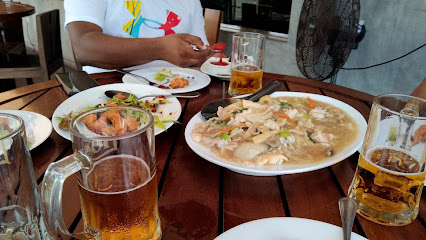
Maharaja Palace
Savor authentic Indian cuisine at Maharaja Palace in Colombo, where tradition meets taste in an exquisite dining experience.
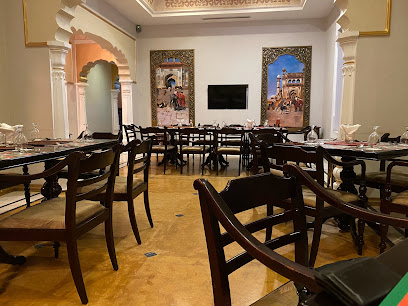
ZEN Japanese Restaurant
Discover authentic Japanese cuisine in Colombo at ZEN Japanese Restaurant - where culinary art meets serene ambiance.
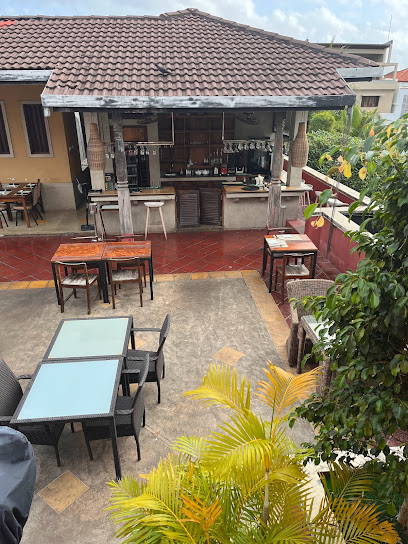
Kami Maki
Experience authentic Japanese cuisine at Kami Maki in Colombo's vibrant Cinnamon Gardens - where tradition meets modern flavor.
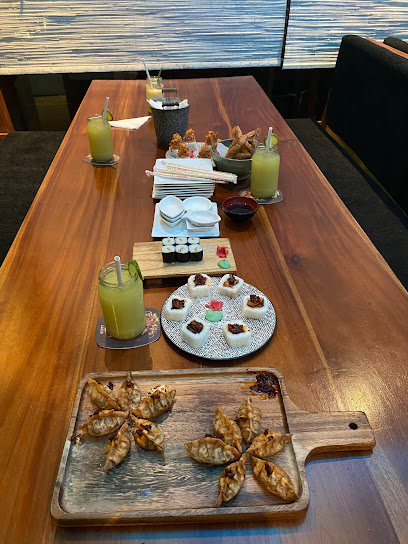
Cafe Shaze
Discover the culinary delights at Café Shaze in Colombo - where Asian fusion meets exquisite pastries in a charming ambiance.
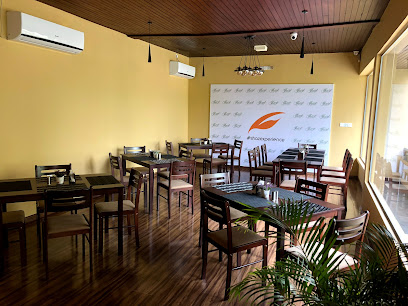
Le Papillon
Discover Le Papillon in Colombo - where exquisite flavors meet charming ambiance in the heart of Cinnamon Gardens.
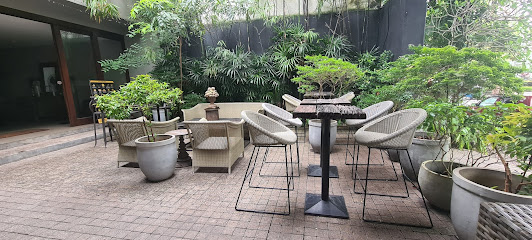
Fortune Boat Chinese Restaurant
Experience the rich flavors of authentic Chinese cuisine at Fortune Boat Restaurant in Colombo's Cinnamon Gardens.
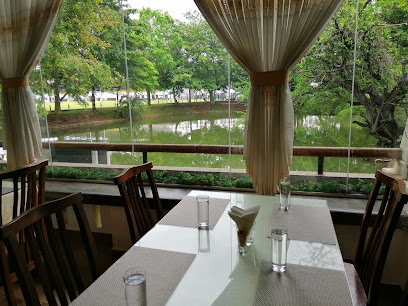
Twins Cafesl
Discover authentic Italian flavors at Twins Cafe in Colombo's lively Arcade - a must-visit culinary destination for every traveler.
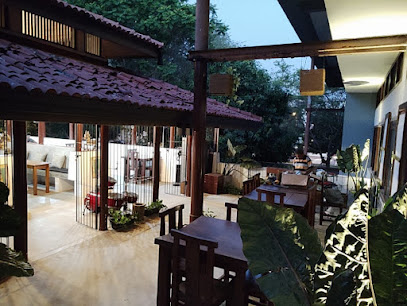
Sylon RESTAURANT
Experience the best of Sri Lankan flavors at Sylon Restaurant in Colombo's Cinnamon Gardens—where every dish tells a story.
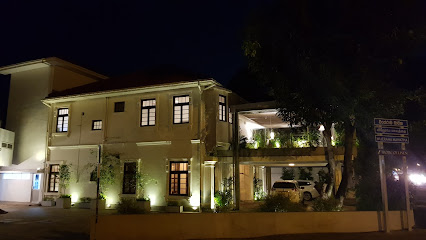
Markets, malls and hidden boutiques
Arcade Independence Square
Explore the vibrant Arcade Independence Square, where shopping meets history in the heart of Colombo, Sri Lanka.
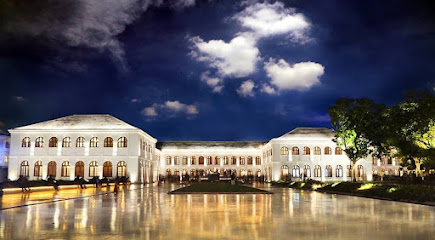
Cool Planet
Discover unique fashion and accessories at Cool Planet, Colombo's leading clothing store and shopping haven for stylish travelers.
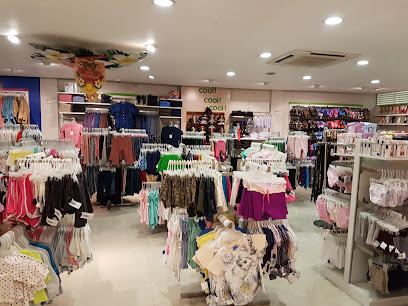
Butter Boutique
Discover the exquisite flavors of Butter Boutique, a cake shop in Colombo, offering artisanal desserts and a cozy atmosphere perfect for sweet indulgence.
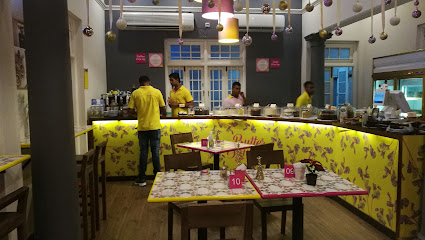
Lakpahana
Explore Lakpahana, Colombo's hidden gem for authentic Sri Lankan gifts, showcasing exquisite handicrafts and cultural treasures.
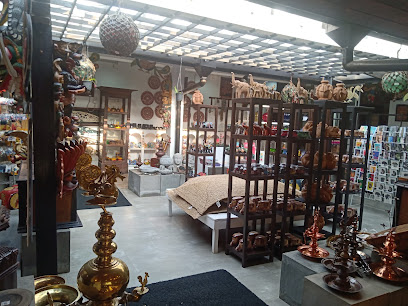
Lak Medura
Explore the vibrant world of Sri Lankan craftsmanship at Lak Medura, your go-to gift shop for unique souvenirs and local artistry.
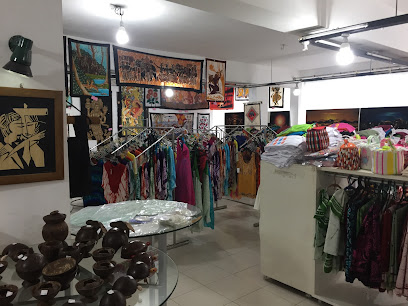
1 Tori House - Unique Home Decor & Gifts
Explore the charm of Sri Lanka at 1 Tori House - your destination for unique home decor and handcrafted gifts.
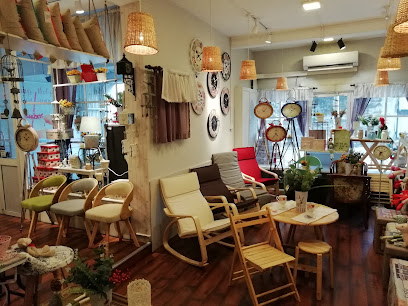
Boutique At Horton Place
Explore luxury shopping at Boutique At Horton Place, the premier destination for high-end goods in Colombo's Cinnamon Gardens.
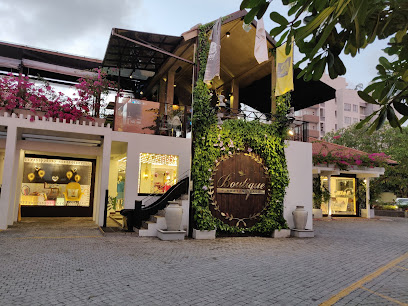
Thambili Culture Boutique
Discover the essence of Sri Lankan fashion at Thambili Culture Boutique, where traditional craftsmanship meets contemporary style.
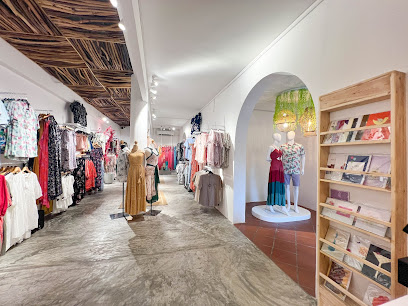
PR Concept Store
Explore the vibrant fashion scene at PR Concept Store, a premier clothing destination in Colombo's chic Cinnamon Gardens.
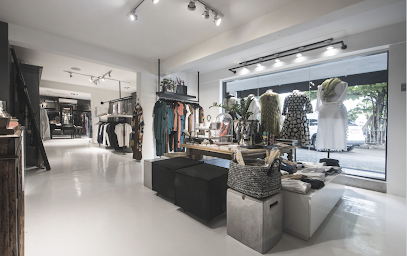
Pettikade (පෙට්ටි කඩේ ෆයිස්ටාර්)
Explore Pettikade in Colombo for unique Sri Lankan crafts, delightful snacks, and an authentic shopping experience in Cinnamon Gardens.
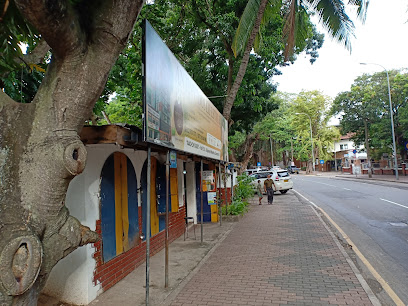
Essential bars & hidden hideouts
KAVA Island Bar
Discover KAVA Island Bar in Colombo for a tropical grill experience, blending delicious cuisine with vibrant nightlife and a charming atmosphere.
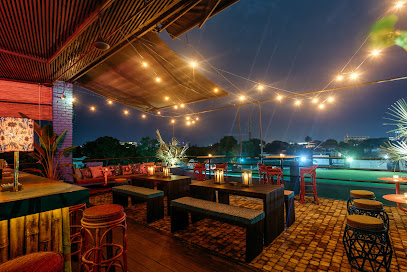
The Love Bar at Flamingo House
Discover the vibrant nightlife at The Love Bar at Flamingo House, Colombo's premier bar and disco club, featuring exquisite cocktails and lively music.
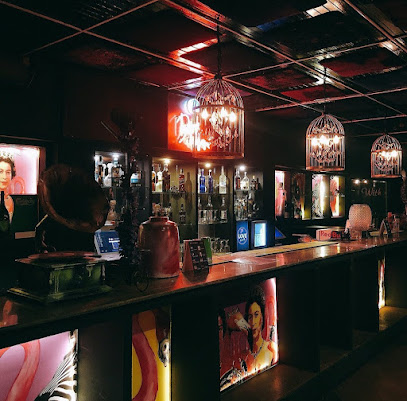
Blackout Bar & Restaurant
Discover the vibrant flavors and relaxed ambiance of Blackout Bar & Restaurant in Colombo, perfect for unwinding after a day of exploration.
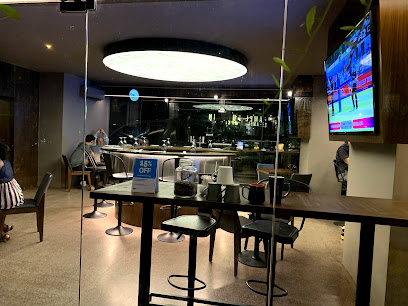
The Breeze Bar
Experience unrivaled views and exquisite flavors at The Breeze Bar, Colombo's top destination for relaxation and fine dining.
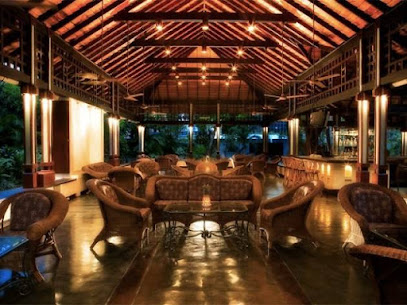
Curve Bar
Experience the vibrant nightlife of Colombo at Curve Bar, where signature cocktails and a lively atmosphere await you.
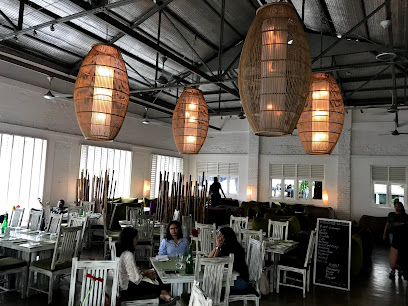
The Manchester
Discover the lively atmosphere and extensive drink selection at The Manchester, a premier bar in Colombo's Cinnamon Gardens.
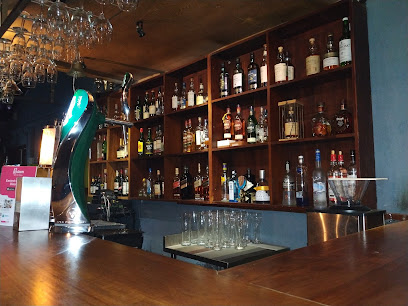
Sugar Bistro & Wine Bar
Experience a fusion of local and international flavors at Sugar Bistro & Wine Bar in Colombo, where culinary excellence meets a vibrant atmosphere.
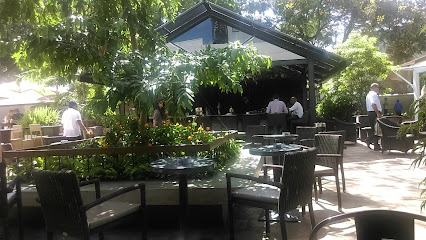
Zambar
Experience the vibrant flavors of Sri Lanka at Zambar, a lively pub and restaurant in Colombo's Arcade Independence Square.
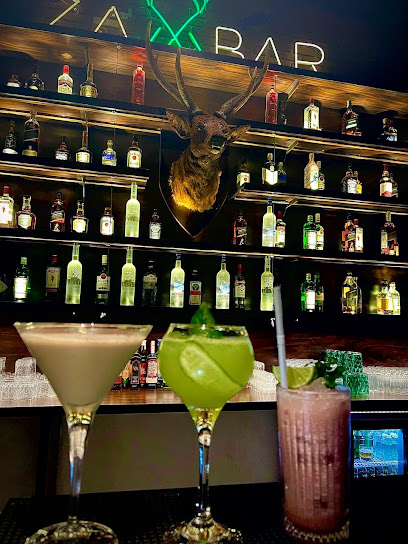
The red bar
Experience Colombo's nightlife at The Red Bar, where vibrant cocktails and a lively atmosphere create unforgettable moments in Cinnamon Gardens.
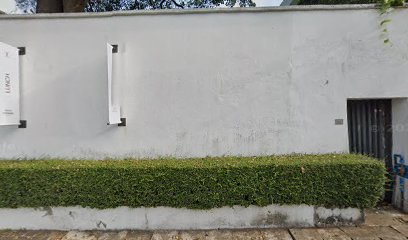
Skky Bar
Experience the vibrant nightlife of Colombo at Skky Bar, where stunning skyline views meet exquisite cocktails in a chic ambiance.
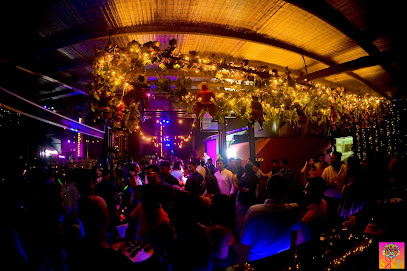
Local Phrases
-
- Helloආයුබෝවන්
[Ayubowan] - Goodbyeසල්ලි
[Salli] - Yesඔව්
[Owa] - Noනෑ
[Nae] - Please/You're welcomeකරනවා/කියලා බලා
[Karannava/Kiyala balaa] - Thank youඔබට ස්තූතියි
[Obata sthuthiyi] - Excuse me/Sorryකරනවා/සමාධෝවී
[Karannava/Samadawee] - How are you?ඔයා කොහොමද?
[Oya kohomada?] - Fine. And you?හොඳම. ඔයා?
[Hondama. Oya?] - Do you speak English?ඔයා ඉංග්රීසි කතා කරනවාද?
[Oya Ingirisi katha karannavada?] - I don't understandමට දත්ත නොවනවා
[Mata data nowanava]
- Helloආයුබෝවන්
-
- I'd like to see the menu, pleaseමනර් පාන්දු බලන්න
[Manar pandu balanna] - I don't eat meatමම මස් නෑම
[Mama mas naem] - Cheers!සුදු ආයුබෝවන්!
[Sudu ayubowan] - I would like to pay, pleaseමනර් ගෙවන්න
[Manar gewanna]
- I'd like to see the menu, pleaseමනර් පාන්දු බලන්න
-
- Help!උක්තළා!
[Ukathla!] - Go away!යන්න!
[Yanna!] - Call the Police!පොලිස් කළඹු!
[Police kalabu!] - Call a doctor!වෛර කළඹු!
[Vaira kalabu!] - I'm lostමම දම්වුලා
[Mama damwula] - I'm illමම අස්වර්ගොතේ
[Mama aswaragotay]
- Help!උක්තළා!
-
- I'd like to buy...මනර් ... මිලදීගෙන එන්න
[Manar ... miladigena enna] - I'm just lookingමම ඇපක්ෂා කරමි
[Mama apeksha karami] - How much is it?එය කොහොමද?
[Eya kohomada?] - That's too expensiveඑය වේගයි
[Eya wegai] - Can you lower the price?මිල අහිතුනවාද?
[Mila ahithunavada?]
- I'd like to buy...මනර් ... මිලදීගෙන එන්න
-
- What time is it?දින කාලය කුලේ?
[Dina kalaya kule?] - It's one o'clockඑකට
[Ekata] - Half past (10)දහයි පැයක්
[Dahayi payak] - Morningඋදේම
[Udema] - Afternoonසවස
[Sawasa] - Eveningසහය
[Sahaya] - Yesterdayඊයේ
[Iye] - Todayඅද
[Ada] - Tomorrowහෙට
[Heta] - 1එක
[Eka] - 2දෙක
[Deka] - 3තුන
[Thuna] - 4හත්
[Hath] - 5පහ
[Paha] - 6හය
[Haya] - 7හත
[Hatha] - 8අශ්ව
[Ashwa] - 9නත්
[Natha] - 10දහ
[Daha]
- What time is it?දින කාලය කුලේ?
-
- Where's a/the...?...කොහොමද?
[... Kohomada?] - What's the address?ලිපිනය කුලේ?
[Lipinaya kule?] - Can you show me (on the map)?මගේත් පෙන්වන්න
[Mage th penwanna] - When's the next (bus)?ඊළඟ ... කාලය කුලේ?
[Elaga ... kalaya kule?] - A ticket (to ....)කාලසත්වයක් (... වෙත)
[Kalasathwayak (... wetha)]
- Where's a/the...?...කොහොමද?
History of Cinnamon Gardens
-
Cinnamon Gardens, as its name suggests, was originally known for the flourishing cinnamon plantations that thrived in the area during the colonial period. Established by the Portuguese in the 16th century and later expanded by the Dutch and British, these plantations became significant for Sri Lanka's economy. The region's fertile soil and favorable climate made it an ideal location for cinnamon cultivation, which was highly sought after in international markets.
-
In the late 19th century, Cinnamon Gardens began its transformation from agricultural land to a residential area, particularly for the British elite and affluent locals. The construction of large colonial bungalows and spacious gardens took place during this time, reflecting the Victorian architectural style. This shift marked the beginning of Cinnamon Gardens as a prestigious neighborhood, attracting prominent figures in Sri Lankan society.
-
As the 20th century progressed, Cinnamon Gardens evolved into a cultural and educational hub of Colombo. The establishment of prominent institutions such as the Royal College, the Colombo Academy, and later, the University of Colombo, solidified the neighborhood's reputation as a center for learning and culture. The area became home to many influential artists, writers, and political figures, contributing to its rich cultural tapestry.
-
After Sri Lanka gained independence in 1948, Cinnamon Gardens continued to flourish as a desirable residential area. Development efforts introduced modern amenities while preserving the historical architecture. The neighborhood became known for its lush greenery, parks, and cultural institutions, such as the National Museum of Colombo, which resides nearby, showcasing the country's heritage and history.
-
Today, Cinnamon Gardens reflects a blend of historical elegance and modern urban life. The neighborhood maintains its status as one of Colombo's most affluent areas, with a mix of colonial-era homes and contemporary residences. The community continues to thrive culturally, hosting various art exhibitions, musical performances, and literary events, contributing to the vibrant cultural scene of Colombo.
Cinnamon Gardens Essentials
-
Cinnamon Gardens is centrally located in Colombo and can be easily accessed from various neighborhoods. If you are coming from the Colombo Fort area, you can take a tuk-tuk or taxi, which should take around 15 minutes. Public buses are also available, with several routes stopping in or near Cinnamon Gardens. For those arriving from the Bandaranaike International Airport, consider hiring a taxi or using a rideshare service, which will take approximately 35-45 minutes depending on traffic.
-
Cinnamon Gardens is best explored on foot or by bicycle, as many attractions are within walking distance. There are bicycle rental services available for those who prefer cycling. Public buses serve the area, and the Colombo Light Rail is expected to enhance connectivity in the future. Tuk-tuks are also a popular and convenient option for short trips within the neighborhood.
-
Cinnamon Gardens is generally considered a safe area for tourists. However, it is advisable to stay vigilant in crowded public spaces and avoid displaying valuables. Areas like the outskirts of Borella can experience higher crime rates, particularly at night. Always exercise caution when navigating less populated streets.
-
In case of an emergency, dial 119 for police assistance or 110 for fire services. The nearest hospitals are Lanka Hospitals and Nawaloka Hospital, both of which are well-equipped to handle emergencies. It is advisable to carry a copy of your travel insurance and any necessary medical information.
-
Fashion: Do dress modestly, especially when visiting religious sites. Avoid wearing revealing clothing. Religion: Do respect local customs and traditions. Always remove your shoes before entering temples. Public Transport: Do be courteous and offer your seat to elderly passengers. Don't eat or drink on public transport. Greetings: Do greet with a friendly smile and a nod; handshakes are common among men. Eating & Drinking: Do try local delicacies and accept food offerings graciously. Don't refuse hospitality, as it is considered impolite.
-
To experience Cinnamon Gardens like a local, visit the local markets such as the Colombo Farmers' Market for fresh produce and artisanal goods. Engage with locals at cafes and parks, as they often share insights about the area's history and culture. Don't miss the beautiful Viharamahadevi Park for a leisurely stroll or a picnic. Try to visit during the evening when the area is lively with street food vendors and local musicians.
Trending Landmarks in Cinnamon Gardens
-
Viharamahadevi Park
-
Independence Square
-
Colombo Lotus Tower
-
Colombo National Museum
-
Gangaramaya Park
-
Srī Sambōdhi Mahavihāra Temple
-
Sri Lanka Planetarium
-
Viharamaha Devi Park Buddha Statue
-
Independence Memorial Museum
-
Khan Clock Tower
-
Cinnamon Garden Residencies
-
Kayman's Gate - Dutch Bell Tower, කයිමන් දොරකඩ
-
Cinnamon Nature Trails
-
Summer Hut
-
Felix Dias Bandaranaike Statue
Nearby Cities to Cinnamon Gardens
-
Things To Do in Negombo
-
Things To Do in Bentota
-
Things To Do in Hikkaduwa
-
Things To Do in Kandy
-
Things To Do in Nuwara Eliya
-
Things To Do in Galle
-
Things To Do in Unawatuna
-
Things To Do in Mirissa
-
Things To Do in Ella
-
Things To Do in Matara
-
Things To Do in Sigiriya
-
Things To Do in Anuradhapura
-
Things To Do in Polonnaruwa
-
Things To Do in Trincomalee
-
Things To Do in Kanyakumari










